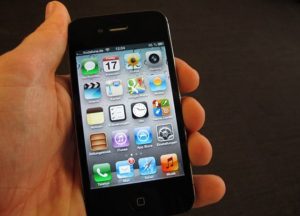 Like all mobile devices your Apple iPhone 3G is also prone to causing us to go about our daily life in a less than safe manner. Recently someone was shown on the news walking into a fountain while focused on sending a text msg on her smart phone.
Like all mobile devices your Apple iPhone 3G is also prone to causing us to go about our daily life in a less than safe manner. Recently someone was shown on the news walking into a fountain while focused on sending a text msg on her smart phone.
We have all seen people texting while driving their cars, and we thought talking on the phone while driving was bad. Unfortunately few of us take this issue seriously until something really bad happens or we have a near miss. One guy was caught driving at 100 miles per hour while watching a movie n his iPad! How dumb is that
Common sense tells us that you are far better off to be sitting somewhere while talking, surfing or sending a text message instead of trying to multi task – whether it is driving , walking or even talking on the phone with someone. Let’s face it our complete attention is not on what we are doing.
iPhone Safety Issues – Wi-Fi Safety Tips:
While we are focused on the iPhone in this post, these points apply to any smart phone or device that is portable. Here are a few obvious tips for using an iPhone from a safety perspective:
- Pull over if you need to text, surf or answer the phone while driving
- Stop somewhere if walking and send your message
- Avoid running into people, stop and send your text message
Along with safety for iPhones, comes security as well, which many smart phone users take for granted. Here are a few tips to keep you safe and secure.
iPhone Passcode Security Tips:
It makes sense to protect your private info in case your iPhone gets stolen or lost. Set your iPhone Pass code lock from Settings > General > Passcode Lock. Once you set the access Pass code your iPhone will automatically lock after the selected time interval. If you lose your iPhone or iPod, at least having the pass code in place will give you time to reset all of your passwords to your applications.
iPhone Web Security Tips:
Always delete the cookies after every session by tapping the Clear Cookies button in the Safari settings. Users who want to be extremely cautious can completely disable cookies, but note that to access most of the websites you need to accept cookies.
Secure iPhone Emailing Tips:
When using your iPhone for sending or receiving emails remember to do so over a SSL protocol. The Secure Sockets Layer (SSL) encrypts all mail sent and received via your iPhone. Using a non-SSL mail client can seriously compromise your privacy and security.
More Tips for Keeping your Personal Information Safe
- First and foremost, never, ever leave your iPhone unlocked. Manually lock your phone whenever you set it down. Even better set it to auto lock when it has not been used for 15 seconds or more.
- Keep up with Apple firmware updates. Apple’s well-publicized flaw that allowed access to the address book via the emergency call mechanism was repaired, but only if you applied the patch. Also keep all of your apps up to date. Routine updates to improve features and most important to improve security are issued by most app developers.
- Put your iPhone on a leash. Keeping your phone with you provides the only impenetrable shield against theft or tampering. Keep it in your pocket the same way you would your wallet. Some people like to use the leather holsters that attached to a belt. Personally I lost an iPhone this way, so mine now always goes in my pocket. Treat your iPhone as you do your wallet.
- Hide sensitive data in plain sight. Since the iPhone has no device-wide data encryption. It does support encrypted databases, but the inconvenience of having to unlock the data every time you want to read it may limit your use of it. As an alternative, hide some of your most sensitive data in plain sight by scattering it across non obvious places, like your iPod library and browser bookmarks.
In Summary
iPhones, iPods or iPads, they are all convenient and easy to use. They are designed this way for the consumer, so that they will be embraced and utilized widely by people from all walks of life, including the tech savvy and the non tech savvy.
If you treat your device as if it is your wallet and protect it in the same manner you will most likely be fine. However by embracing a few of the concepts mentioned above, most users can easily add additional protection that will keep their information and their devices safe and out of harms way.
For more information about Apple iPhones, click here.